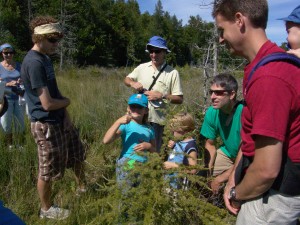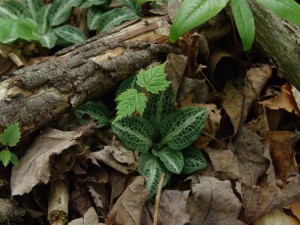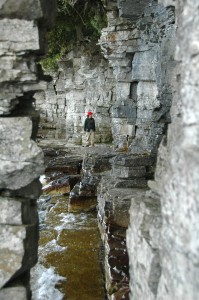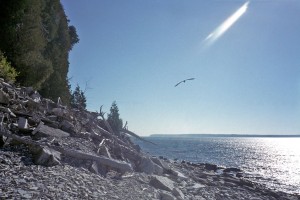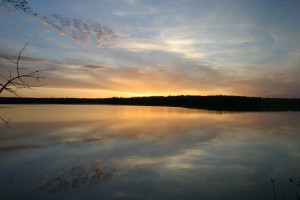Ecotourism in Door County
- Share
- Tweet
- Pin
- Share
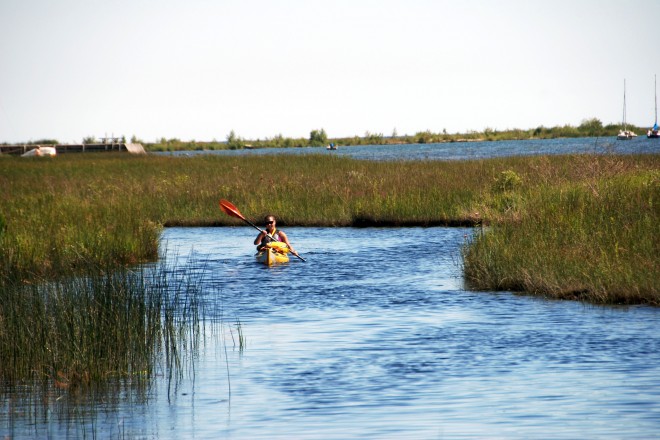
The mystique that Door County carries is difficult to define, but it gets inside you and doesn’t let go. It’s part winding, backcountry roads and haunting waters, part fieldstone rock walls and hazy morning light. Once people visit the county, like a boomerang, they return again and again, feeling that magical pull back to revisit their favorite spots and beloved, collective memories. This place is exceptional for so many reasons. It isn’t simply a tourist destination; it’s a place filled with adventure, mystery, and intrigue.
As a tourist, it’s easy to get wrangled into staying on the major veins of Highways 42 and 57. While, of course, there is much to see in the cozy, bustling towns on the shoreline, the real essence of Door County lies off the beaten track, in the deep, loamy forests and offshore in the placid waters that surround us. It’s not always easy to find these hidden places, especially for new visitors to the county. Luckily, there are people and businesses who specialize in leading visitors away from the main drag, and into some of the most beautiful and ecologically diverse areas that Door County has to offer.
Ecotourism is certainly not a new concept; however, with the altering global discussion of “being green” and becoming collectively more ecologically mindful, the practice of ecotourism has gained some attention. As the name implies, ecotourism is visiting pristine and sometimes protected areas in a manner that aims to have a low impact.
Paul Regnier, owner of Door County Nature and Travel, explains the definition of ecotourism further: “It’s visiting natural areas while promoting the conservation of natural resources that enhance the local people’s [lives].”
Regnier’s business focuses on connecting people with the natural and cultural highlights that Door County has to offer. While his business is centered in Door County, he’s also led trips all over the world promoting concepts that underpin ecotourism.
According to The International Ecotourism Society, or TIES, ecotourism is about uniting the three concepts of conservation, communities, and sustainable travel. Additionally, there are six principles to ecotourism that they highlight: minimize impact, build environmental and cultural awareness and respect, provide positive experiences for both visitors and hosts, provide direct financial benefits for conservation, provide financial benefit and empowerment for local people, and raise sensitivity to host area’s political, social, and environmental climate.
Minimizing impact, as TIES points out, is an integral aspect of ecotourism. David Rack, owner and operator of Door County Kayak Tours, LLC, cites this as one of the major goals of his business.
“Low impact activities, like kayaking or bike riding, are ideal ecotourism activities,” Rack says. He also refers to the Leave No Trace, or LNT, principles as a guiding force for his company’s activities. LNT is an international program designed to assist outdoor enthusiasts with their decisions about how to reduce their impacts when they participate in outdoor activities. Leave No Trace is best understood as an educational and ethical program, not as a set of rules and regulations.
“Along with LNT practices, we are very conscious of our natural surroundings, and choose locations that will have a minimal impact,” says Michael Fischer, Rack’s business partner at Door County Kayak Tours.
Around Door County, ecotourism is alive and active. The businesses and organizations that lead trips into the county’s protected lands like to focus on taking people away from highly trafficked natural areas. The state parks are popular places for nature lovers to seek out; however, choosing places around the county that are low traffic, and therefore more pristine, is a goal of many operating businesses in the county.
Jaime and Brian Forest, owners of Door County Living Classrooms, like to utilize land that falls under the umbrella of the Door County Land Trust, the Nature Conservancy, and other protected publicly accessible lands.
“We take people to the places they wouldn’t find on their own. Door County has the highest number of rare species per square mile than anywhere else in the state,” states Jaime Forest, and finding and teaching about those rare species and locations is more plausible in the low profile places around the county.
Education is a key component to ecotourism. It’s one thing to sit in an indoor classroom and learn about why it is important to recognize the natural areas, and quite another to go out into the natural environment and be shown the concepts.
“We like to not only tell visitors why these places are important, but also show them how they’re special,” Forest says. “It’s the difference between a tour and an experience.”
This sentiment is echoed by other ecotourism businesses as well. Paul Regnier’s background in environmental education is deep and varied. Along with having a Master’s Degree in Environmental Education, Regnier was the Executive Director of The Ridges Sanctuary in Baileys Harbor, founded and became the first president of the Door County Green Fund, and has taught classes in a variety of locales, including The Clearing in Ellison Bay.
“Being an educator on these issues is so important,” Regnier says. “It’s the first time in Earth’s history that a species has the influence over the planet and it’s not going to get simpler in the future.”
Setting a positive and responsible example is part of these businesses’ mission statements and goals. “It’s important to explain to our customers why we do things like clean the boats when we move locations, so when they leave Door County, they’ll take that practice with them,” Rack states.
For this reason, many local businesses have decided to become members of Travel Green Wisconsin, a voluntary program that reviews, certifies and recognizes tourism businesses and organizations that have made a commitment to reducing their environmental impact. Specifically, the program encourages participants to evaluate their operations, set goals and take specific actions towards environmental, social, and economic sustainability.
Travel Green Wisconsin has members throughout the tourism industry including accommodations,
parks, restaurants, and shops, so it’s important to make the distinction that Travel Green is not an ecotourism accreditor, but rather a program that sets a positive ecological example for businesses to adhere to.
Bay Shore Outdoor Store in Sister Bay is one such certified business dedicated to providing ecotourism experiences for its customers while setting an ecologically mindful example of business practices.
Rick Wylie, co-owner of Bay Shore, is no stranger to ecotourism, as he has been participating in sustainable and educational programming in Door County since the 1980s.
“In some ways, those of us that commercially use the waters or trails of Door County for recreation have some responsibility for sharing the importance of preserving it. It’s part of our payback for using it. As users, we are responsible for sharing that information with our guests,” Wylie states.
With all the media attention that the ecological movement has generated of late, many businesses are scrambling to become more environmentally friendly and appealing. However, not all businesses take appropriate or meaningful steps in the right direction and, therefore, it’s important to note the dangers what TIES calls “green-washing.”
Green-washing is the inclination toward the commercialization of tourism schemes that are disguised as sustainable and environmentally friendly ecotourism. TIES urges consumers and potential eco-tourists to be sure to “check labels” and ensure that the business is actually providing an ecologically mindful experience, not just appearing as though it is.
“It’s not just going to those [unique and protected] areas; it’s how you go there,” Regnier asserts. One aspect of ecotourism is how the local environment and people may benefit, and donating or shopping amongst other businesses that are ecologically mindful and responsible is integral.
The opportunity for an experience is there. Door County is vastly ecologically unique and diverse. People visit Door County for the exciting activities, delicious dining, and excellent shopping, but what truly draws people in and captures them is the beauty of it all. Exploring what makes Door County so incredibly stunning, and more importantly, discovering how to keep it that way, is what ecotourism is all about. Ecotourism doesn’t just tell why Door County is special, it shows it. Off the beaten path, Door County’s true beauty awaits you.


